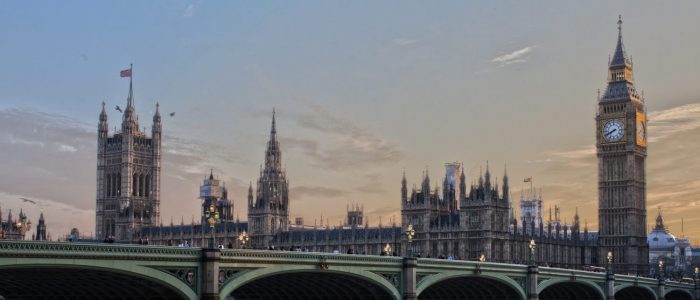Faith on Display in Parliament

2020 marks the beginning on a new season for British politics, with three years of Brexit debate (mostly) settled, the strongest majority government since 2005, and a major shake-up in regional and class-based voter alignment. Could this juncture also see an increased appreciation of faith views and contributions to British society?
The December 2019 election saw the arrival of a host of new MPs, with new opinions and priorities, several of whom were very happy to use their maiden speeches to talk about the importance of faith, among other things. One prime example came from Stuart Anderson, the Conservative MP representing Wolverhampton South West. Anderson began his maiden speech by sharing about the history of Wolverhampton, before mentioning several of the ‘gems’ of the city today: the football team, the university, the local newspaper. “But the real prize in Wolverhampton is the people,” said Anderson. What evidence did he provide to back that claim? Just two things: that they are straight-talking, and they are a community of faith.
We have a multicultural, multifaith population, ranging from Christian, Sikh, Muslim, Hindu and many more. In Wolverhampton, you can walk past a church, a gurdwara and a mosque all on the same street, and see the communities living and working together hand in hand. That is testimony to the great people of Wolverhampton.
Anderson used the second half of his speech to continue discussing the importance of faith, but on a much more personal level. While in the army, aged 17, Anderson was shot during a training exercise and was rushed to hospital, where he was informed his foot would have to be amputated. He was told he “would never walk without the aid of a walking stick, that [he] would never run again, and that [his] military career was over”. At that moment he decided to shut out any pain, physical or emotional – “a decision that would haunt me for many years to come”.
Against all the odds, the doctors saved Anderson’s foot, he learnt to walk and run again, and returned to full active service in the Army. However, he never recovered emotionally from the trauma. No one ever asked him how he was doing, and eventually he turned to alcohol to block out the pain and “escape reality”. Anderson described how his life at that stage was like living in a “virtual coma”, and how, once devoid of hope, he even considered ending it.
In my mind, my life was over; I had been dealt a bad hand, and that was my life. I thought I would try to do something good for my kids. I never wanted anyone to have to experience my life, let alone my children, so I decided to take them to church. There are many reasons why people come out of despair. When I was trying to do something right by my family, I found faith. For the first time in many years, I could see a hope and a future. As the Wolverhampton motto says, “Out of darkness cometh light”, and I could see light out of the darkness.
Finding faith helped Anderson to discover hope and turn his life around. It also gave him the desire to help others, which eventually led him into politics, where he seeks to champion justice, provide for those in need and “change the very fabric of society for good. I know how my life was transformed, and I want to inspire people to believe that they can see change in theirs”.
Anderson is just one example of the many MPs and others in positions of power in this country whose faith has made a difference in their own lives, who celebrate the existence of vibrant faith communities within their cities, and who point to their faith as a key reason that they work tirelessly for the common good. There is still some uneasiness in society about power being placed in the hands of those with strong faith convictions, but it is my hope that the example provided by Anderson and others continues to erode stereotypes and allow people to trust faith as a force for good.
You can watch the full speech here.
One of the ways FaithAction seek to promote the views of faith communities in policy is through our role as secretariat to the All-Party Parliamentary Group (APPG) on Faith and Society. This year, the APPG will be undertaking is a series of interviews with numerous MPs about their faith and how it impacts, motivates and complicates their work. Stuart Anderson’s story is unique in some ways, but there are many others like it. Keep an eye on the APPG website in the coming months as we share some of these stories.



